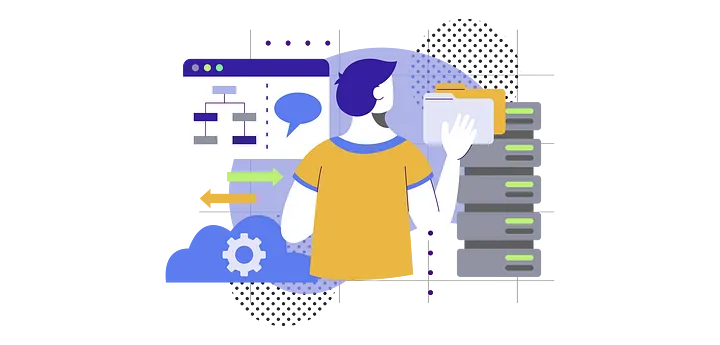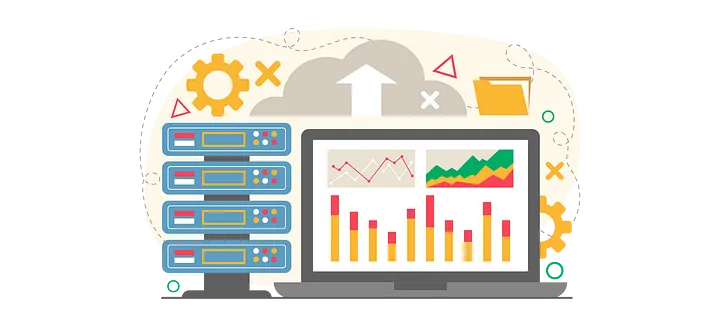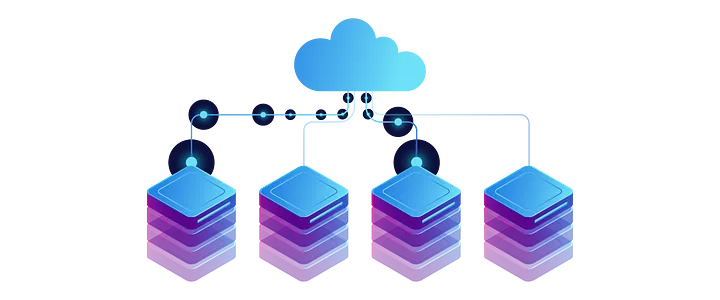By Mohamed Afzal

In the age of data and information, the real-time data exchange between disparate applications has become so crucial that most technological companies have utilized architectural models like the Enterprise Service Bus (ESB) is a that supports real-time data exchange between disparate applications. These ESBs can be further extended to be deployed on Platform as a Service (PaaS) and then can be moved to information Platform as a Service (iPaaS) for more advancements and efficiency. This helps them in terms of cost as well as time and they have plenty of cloud service providers to choose from. PaaS got further extended and improved until iPaaS emerged as an IT infrastructure for implementing on-demand cloud services in the present day.
Many organizations have so many different systems serving different purposes within their organizations. In scenarios where companies are tasked with managing a diverse product portfolio, each with its dedicated data store, the fragmentation of business data across different repositories can present significant challenges. Particularly, when certain business processes necessitate traversing multiple enterprise systems to execute a single operation, fragmentation not only diminishes efficiency but also adds layers of complexity to the process. This complexity often results in inefficiencies and can lead to inaccurate decision-making, impeding business progress and potentially undermining the benefits of system interoperability. . Furthermore, there can be compliancy related issues when different types of systems are being integrated without a proper mechanism due the risks in data leaks. This can also lead to operational inefficiencies within the organizations and can often result in improper decision making.
When you consider large organizations like Telcos, they have significant investments in infrastructure and technology but getting the benefits of those investments can be tricky without proper information sharing and processing. In such a complex scenario, iPaaS can serve as a lifesaver helping organizations to tackle data fragmentation end-to end. Read on to find more about iPaaS and how it can calp you tackle your current challenges.
What is iPaaS?

iPaaS is a cloud-based platform that enables organizations to integrate and connect various apps, systems, data sources, and services within their ecosystem. iPaaS solutions typically offer pre-built connectors, data mapping tools, and workflows to streamline the integration process without the need for extensive coding or hardware infrastructure. iPaaS can be particularly useful for telco companies looking to improve their agility, scalability, and efficiency by seamlessly integrating disparate systems and applications across their enterprise architecture.
When you consider iPaaS solutions, they enable organizations to build and deploy integrations within their own systems and the cloud and between different cloud environments. This has become an important benefit because it decouples the infrastructure management from the systems and makes them more independent and flexible. With so many organizations using both cloud, legacy, and on-premises technology, iPaaS enables connectivity between all these various systems so no technology is left out when it comes to data integration. Additionally, iPaaS users can develop and deploy integration flows between these systems without installing or managing any hardware or middleware.
The fundamental principles of iPaaS
Cohesion and Independence
When organizations have significant investments, it becomes crucial for them to have configurable connectivity options such as pre-built connectors, templates, and APIs which would allow them to share and reuse assets quickly and easily. This enables the organizations to select the best cloud platforms and apps from the available options to add new capabilities to their ecosystem.
Unification through integration
Connecting applications to other applications takes the center stage with iPaaS platforms. This can often help organizations to migrate existing on-premises applications and data to the cloud, integrate SaaS applications with on-premises applications and data, connect cloud-native applications across on-premises and cloud environments and much more.
Dynamic Scaling
Due to the cloud-based nature, iPaaS are robust, agile, and able to extend or shrink along with the dynamics of the business. They enable this by the mechanisms to scale the infrastructure up or down as per the user demands which can significantly enhance efficiency and reduce costs as iPaaS is billed as per the utilization.
A virtual machine is a system that acts exactly like a computer. Following the virtualization of the hardware, each virtual machine needs its own operating system.
What benefits does iPaaS bring for Telcos?

Telecommunication companies, typically medium to large-scale enterprises, boast significant customer bases and diversified infrastructure, alongside specialized expertise. Within such organizations, various systems are employed to manage different functions. These may include call center solutions, CRM platforms, self-service applications, and various value-added service (VAS) applications. Often, these systems operate independently and can be deployed on-premises, in the cloud, or in hybrid setups. Given the vast amount of data generated and stored across these systems, there lies immense potential to leverage this data effectively to enhance customer experiences.
However, one of the primary challenges lies in integrating disparate data stores and enabling seamless communication between systems, exacerbated by the diversity of infrastructure implementations, integration difficulties, high costs, legacy constraints, and the shortage of expertise in understanding these systems. In such a complex scenario, Integration Platform as a Service (iPaaS) emerges as a crucial solution, equipped with the necessary tools and capabilities to integrate data and systems, thereby creating a cohesive ecosystem. By centralizing data and processes, iPaaS offers enhanced visibility, control, and utilization of stored data.
As telecommunications companies grapple with diminishing revenues in their core operations, many are seeking collaborative ventures with industry specialists to bolster long-term viability. Telcos possess vast troves of customer data dispersed across numerous internal systems, offering invaluable insights into preferences, usage behaviors, and purchasing power. However, this wealth of data often remains fragmented. By leveraging Integration Platform as a Service (iPaaS) solutions, telcos can bridge data silos, gaining comprehensive visibility. By doing this, telcos can grow their revenue with new products/services, reduce costs by cutting down extra human efforts, make the time to market faster and ultimately become a tech co from being a telco.
Want to get rid of information fragmentation challenge? Explore Axonect to make it a reality!
You can visit www.axonect.com to know more about its Axonect Product Suite respectively.




